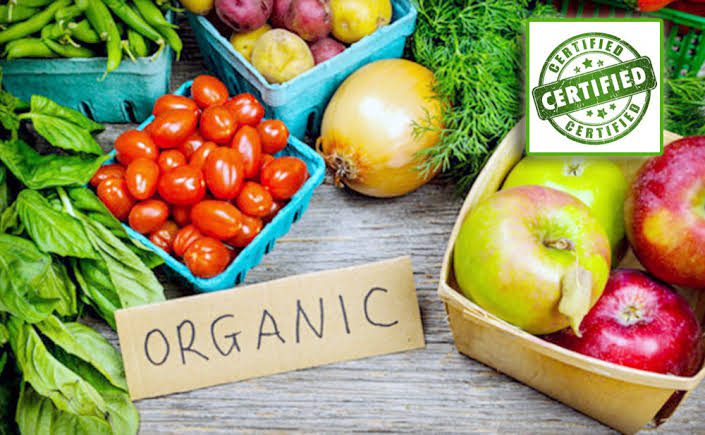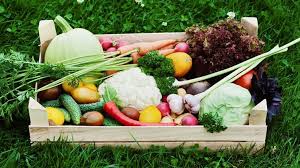Organic Certification is a way to ensure that the food we eat and the products we use are produced in a manner that is good for the environment and our health. When something is labeled as “organic,” it means that it has met certain standards set by organizations that specialize in organic certification.
To get organic certification, farmers and producers must follow specific guidelines. These guidelines often include using natural fertilizers, avoiding synthetic pesticides, and practicing sustainable farming methods. It’s like a set of rules that ensure the product is made in a way that is kind to the Earth.
Farmers who want the organic label for their products must go through a thorough inspection process. This means that someone, often a trained inspector, visits the farm to make sure everything is up to organic standards. They check the soil, the crops, and even the animals if the farm has them. It’s like a check-up to guarantee that the farm is doing things the right way.
Think of organic certification like a badge of honor for farmers who care about the environment. It tells consumers that the product they are buying is made with extra care, without harmful chemicals that can be bad for our health or the planet. So, when you see that “organic” label on your food, you can feel good knowing that it’s a product that has been produced with the Earth and your well-being in mind.
Organic certification isn’t just about what goes into the soil; it extends to how farmers treat their animals. Organic standards often require humane treatment, access to open spaces, and natural diets for animals. This ensures that the entire process, from planting seeds to raising animals, aligns with principles that prioritize sustainability and ethical practices.
Moreover, organic certification isn’t limited to just fruits and vegetables. It encompasses a wide range of products, including meat, dairy, grains, and processed foods. This means that whether you’re buying a crisp organic apple or a loaf of organic bread, you can trust that it meets rigorous standards.
The benefits of organic certification extend beyond the individual consumer. Organic farming practices promote biodiversity and protect the soil from degradation. By avoiding synthetic pesticides and fertilizers, organic farmers contribute to healthier ecosystems, reducing the potential harm to other plants and animals in the surrounding environment.
Additionally, organic certification often involves traceability, allowing consumers to know exactly where their food comes from. This transparency builds trust between farmers and consumers, fostering a deeper connection to the origins of the products we consume.
In essence, organic certification is like a promise. It’s a commitment from farmers and producers to prioritize the health of the planet and the well-being of those who consume their products. So, the next time you pick up something with that “organic” label, remember that it’s not just a word – it’s a dedication to a more sustainable and conscientious way of farming and living.
Read Also: Guide to Proper Management of Growing and Finishing Pigs
What are the Regulations for Organic Certification?

Organic certification involves strict regulations to ensure that products labeled as “organic” meet specific standards. Here are some key regulations commonly associated with organic certification:
1. Prohibition of Synthetic Chemicals: Organic standards typically prohibit the use of synthetic pesticides, herbicides, and fertilizers. Instead, farmers rely on natural alternatives to maintain soil fertility and control pests.
2. Non-GMO (Genetically Modified Organisms): Organic certification often requires that crops and ingredients are not genetically modified. This ensures that the food produced maintains its natural characteristics.
3. Crop Rotation and Diversity: Farmers seeking organic certification are usually required to implement practices like crop rotation and diversification. This helps maintain soil health, prevent erosion, and control pests without the use of synthetic chemicals.
4. Animal Welfare Standards: Organic regulations frequently include guidelines for the humane treatment of animals. This may involve providing access to the outdoors, natural living conditions, and organic feed for livestock.
5. No Irradiation or Sewage Sludge: Organic certification commonly prohibits the use of irradiation (exposure to radiation) and sewage sludge in the production of organic foods. This ensures that the food remains as close to its natural state as possible.
6. Record-Keeping and Traceability: Certified organic producers are often required to maintain detailed records of their farming and production practices. This traceability helps in monitoring and verifying compliance with organic standards.
7. Annual Inspections: Farms and facilities seeking organic certification undergo regular inspections by certifying bodies. These inspections ensure that the organic standards are consistently met and that any deviations are promptly addressed.
8. Buffer Zones: Organic farms typically have buffer zones to prevent contamination from nearby non-organic farms using conventional agricultural practices. This helps maintain the integrity of organic crops.
9. Soil Health Standards: Organic certification often emphasizes the importance of maintaining and enhancing soil health. This includes practices such as composting, cover cropping, and avoiding the use of synthetic chemicals that can harm soil microorganisms.
10. Labeling and Packaging Requirements: Certified organic products must adhere to specific labeling requirements. This ensures transparency for consumers, allowing them to make informed choices about the products they purchase.
These regulations collectively contribute to the overarching goal of organic certification: promoting sustainable and environmentally friendly agricultural practices while providing consumers with confidence in the organic products they choose.
Read Also: Swine Processing and Marketing
Importance of Organic Certification

The importance of organic certification lies in its multifaceted impact on the environment, consumer health, and sustainable agriculture. Here are key reasons why organic certification is significant:
1. Environmental Sustainability: Organic certification promotes farming practices that are environmentally sustainable. By avoiding synthetic pesticides and fertilizers, organic farming minimizes harm to ecosystems, protects biodiversity, and helps maintain soil health for future generations.
2. Consumer Health: Organic certification assures consumers that the products they purchase meet stringent standards. The absence of synthetic chemicals in organic food reduces the risk of pesticide residues in the diet, contributing to better overall health.
3. Support for Sustainable Agriculture: Organic certification encourages farming methods that prioritize sustainability. Practices such as crop rotation, composting, and natural pest control enhance soil fertility, reduce erosion, and promote long-term agricultural viability.
4. Reduced Environmental Impact: Organic farming typically has a lower environmental impact in terms of pollution and greenhouse gas emissions. By focusing on natural processes and minimizing reliance on fossil fuels, organic agriculture contributes to mitigating climate change.
5. Animal Welfare: Organic certification often includes guidelines for the humane treatment of animals. This ensures that livestock raised for organic products are provided with proper living conditions, access to the outdoors, and organic feed, aligning with ethical and humane standards.
6. Biodiversity Conservation: Organic farming practices support biodiversity by avoiding the use of synthetic chemicals that can harm beneficial insects, birds, and other wildlife. This contributes to the overall health of ecosystems surrounding organic farms.
7. Transparency and Trust: Organic certification provides transparency in the food supply chain. Consumers can trust that products labeled as organic have undergone rigorous inspections and meet specific standards, fostering a sense of confidence and trust in their purchasing decisions.
8. Soil Health and Conservation: Organic farming emphasizes practices that enhance soil health, including the use of compost, cover cropping, and avoiding soil-degrading chemicals. Healthy soils contribute to increased water retention, reduced erosion, and improved nutrient cycling.
9. Market Access and Fair Trade: Organic certification often opens up new markets for farmers, as consumers increasingly seek organic products. It can also be associated with fair trade practices, ensuring that farmers receive fair compensation for their efforts.
10. Promotion of Non-GMO Practices: Organic certification commonly includes requirements to avoid genetically modified organisms (GMOs). This aligns with consumer preferences for non-GMO products and supports sustainable agricultural practices.
In summary, organic certification goes beyond a label; it represents a commitment to ethical, sustainable, and health-conscious practices in agriculture. By choosing organic products, consumers actively support a system that prioritizes the well-being of the planet and its inhabitants.
Read Also: Exploring the Different Types of Medical Waste Disposal Companies

